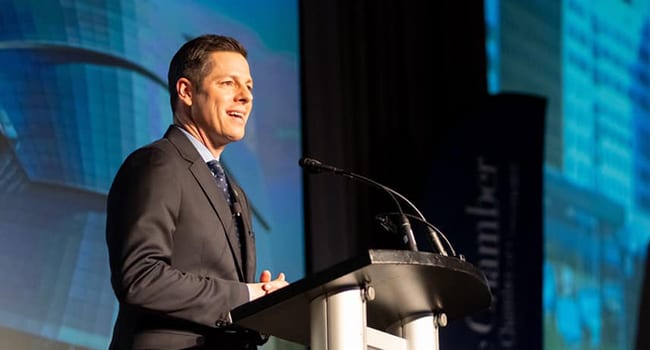 Winnipeg Mayor Brian Bowman is determined to pursue his name game – renaming, removing and rewriting history.
Winnipeg Mayor Brian Bowman is determined to pursue his name game – renaming, removing and rewriting history.
Among his targets is Bishop Grandin Boulevard – the mayor doesn’t like the late Bishop Vital-Justin Grandin’s attitudes.
If Bowman succeeds, the next logical renaming would be St. Vital – also named after Grandin, who was an important person in the early history of Manitoba.
If the mayor is going to rename every street and place named after a person who had attitudes not acceptable today, where would the name game end?
Archbishop Alexandre-Antonin Tache has his name on statues, buildings and street signs; he’s another important historical figure with views about Indigenous people not unacceptable today.
Tache had other views we would find intolerant today – he was anti-Semitic, a misogynist, and intolerant toward those not sharing his skin colour or religion. Tache’s attitudes were representative of the times.
If the mayor follows through, Winnipeg will have few statues or streets keeping their current names. Many names are likely offensive to one group or other. Even Indigenous names now honoured would have to go. Chief Yellow Quill had habits that are unacceptable today, a racist attitude to Sioux people for instance.
If historical figures with 2020 attitudes could be found, the practical problems of renaming familiar streets and place names would be daunting. People would be lost in a city renamed to suit the mayor’s whims.
The mayor has given indications that he will use his historical expertise to rewrite the complicated history surrounding Louis Riel. Was Riel a hero or a scoundrel?
Perhaps Riel should be left to the real historians.
Bowman makes the basic mistake of amateur historians – presentism – analyzing history by judging yesterday’s people by today’s standards. Thomas Jefferson kept slaves, Winston Churchill thought Japanese people were all near-sighted and Woodrow Wilson was a notorious anti-Semite.
In the 1950s, I remember clubs where my Jewish friends couldn’t go, and regrettable attitudes towards Chinese and black people. And Indigenous people were in the group of people who were badly treated. This is all part of our history and that can’t simply be erased by a name game.
We know better now and that’s a good thing.
Perhaps Bowman can’t be blamed for playing the renaming game. It is, after all, one of the calls to action of the Truth and Reconciliation Commission (TRC). But the major flaw of that report was the same fallacy that the Mayor insists on perpetuating. People were judged by today’s exacting standards, even though they lived and acted 50, 100 and even 200 years ago.
Presentism is the greatest flaw in the TRC report.
That’s reason enough for Winnipeg’s mayor to exercise extreme caution in acting on the report, even if Prime Minister Justin Trudeau seems determined to adopt even its most radical recommendations.
A better course for Bowman (and his committee) would be to add explanatory addendums to existing controversial statues and plaques, while carefully vetting new naming opportunities, towards ensuring that only truly outstanding citizens are immortalized.
Obliterating important historical figures from history to please any one faction is a very bad idea. Winnipeg has many serious problems that need the attention of the mayor and his council. Rewriting history is not on that list.
Brian Giesbrecht is a retired judge and a senior fellow with the Frontier Centre for Public Policy.
The views, opinions and positions expressed by columnists and contributors are the author’s alone. They do not inherently or expressly reflect the views, opinions and/or positions of our publication.


